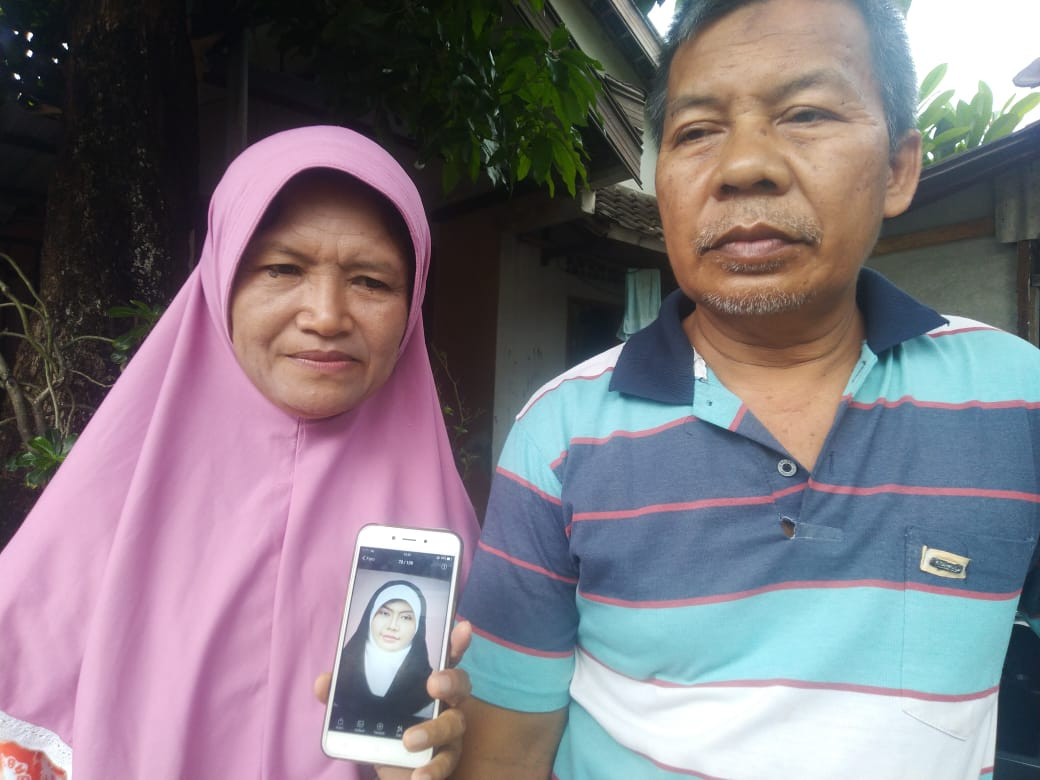Popular Reads
Top Results
Can't find what you're looking for?
View all search resultsPopular Reads
Top Results
Can't find what you're looking for?
View all search resultsTo welcome or deny former IS fighters, avoiding old mistakes
As a nation that bears a dark, unresolved chapter in our history through the purge of alleged communists in the aftermath of the failed Sept. 30, 1965 coup, blamed on the now-defunct Indonesian Communist Party (PKI), we should not repeat the same mistake of making the arbitrary decisions to execute people, like alleged or suspected communists, without due process of law.
Change text size
Gift Premium Articles
to Anyone
T
oday’s controversy is about former fighters of the Islamic State (IS) group and their families: mainly about the intentions of those originating from Indonesia, who had traveled to Syria to join the terrorist group, to return home.
The issue made headlines following government officials’ statements on seeking a consultative approach to settle this contentious issue. President Joko “Jokowi” Widodo expressed his personal disagreement with the idea of repatriating the former IS supporters, but said he would consult his government.
“We will calculate in detail the pluses and minuses and the decision will be made after hearing from relevant ministries,” Jokowi said last Wednesday.
The government’s decision to consider all available options is in sharp contrast to the loud resounding “No!” reaction to the idea of welcoming them. It is also contrary to the rejections of most countries with citizens among those who joined IS, including the United States.
It seems clear that the Indonesians who joined forces with IS have — by legal definition as stipulated in Article 23 of Law No. 12/2006 on Indonesian citizenship — automatically lost their citizenships. These Indonesia-born IS members and sympathizers meet nearly all the stipulations in the nine paragraphs of categories in Article 23, which spell out all considerations for the authorities to annul their Indonesian citizenships.
Still, this article is subject to legal debate because IS is not an entity that meets the criteria of a state lawfully recognized by the United Nations. Therefore, the returnees may not automatically lose their Indonesian citizenship, even if many, if not all, of them renounced their Indonesian citizenship upon joining IS.
So should Indonesia welcome their return or completely reject them? Many things have to be considered, including international conventions, prior to welcoming or rejecting their intention to return.
Any decision to reject their plea to return home, which will lead to their loss of citizenship, will first have to consider the 1954 UN Convention that establishes the criteria of a stateless person and sets out a number of rights that stateless persons should enjoy and the 1961 UN Convention on the Reduction of Statelessness, which sets out standards regarding acquisition and loss of nationality, including automatic loss, renunciation and deprivation of nationality.
Any decision to grant their request for repatriation would also have to go through an equally complicated process. Apart from their citizenship status, which the Indonesian authorities have to decide upon in accordance with both local and international laws, technicalities might complicate the process.
These will include how to determine the Indonesia-born IS members’ level of involvement — and guilt — in the crimes of terrorism, or being willing or unwilling accomplices to the crimes, or whether they were and are still minors.
Opponents of the planned repatriation of the Indonesia-born IS may rightly argue that former IS members are people with extremist thoughts who would readily resort to violence once the opportunity comes up to pursue their dream of establishing a global Islamic caliphate. Video footage of IS members executing people in captivity has only strengthened the anxiety against their possible return.
However, it is very unlikely that the Indonesian-born IS members and sympathizers were among the very limited number of ringleaders within IS’ rank and file, who are the most responsible for IS’ vicious and barbarian acts and who deserve the severest punishment under international and national laws.
There is also ambiguity as to whether those who traveled to Syria qualify as “foreign terrorist fighters” as defined by UN Security Council Resolution 2178 because some might have been compelled to travel (often wives and children) and others may have supported IS through nonviolent means, while others appear to have participated in horrific acts. This complexity requires a case-by-case approach to decide proportional responses and the appropriateness of criminal investigations.
However, despite what seems like widespread public rejection regarding their repatriation, Indonesian authorities, who have the final say on the Indonesian-born IS terrorists’ citizenship statuses and therefore their fates, should not negate their universally recognized rights to continue to live, or at least to be able to defend themselves before a court of justice.
As a nation that bears a dark, unresolved chapter in our history through the purge of alleged communists in the aftermath of the failed Sept. 30, 1965 coup, blamed on the now-defunct Indonesian Communist Party (PKI), we should not repeat the same mistake of making the arbitrary decisions to execute people, like alleged or suspected communists, without due process of law.
We might fall into the same hole if we repeat the mistake by immediately rejecting the pleas of former foreign fighters and their families to return home before giving them the opportunity to defend themselves in a fair trial. For this purpose the government could seek legal advice or input from the UN and/or the International Criminal Court (ICC). From there, it could perhaps be determined whether court proceedings would be held in the ICC under international law jurisdiction or in Indonesia as the suspected terrorists’ country of origin.











